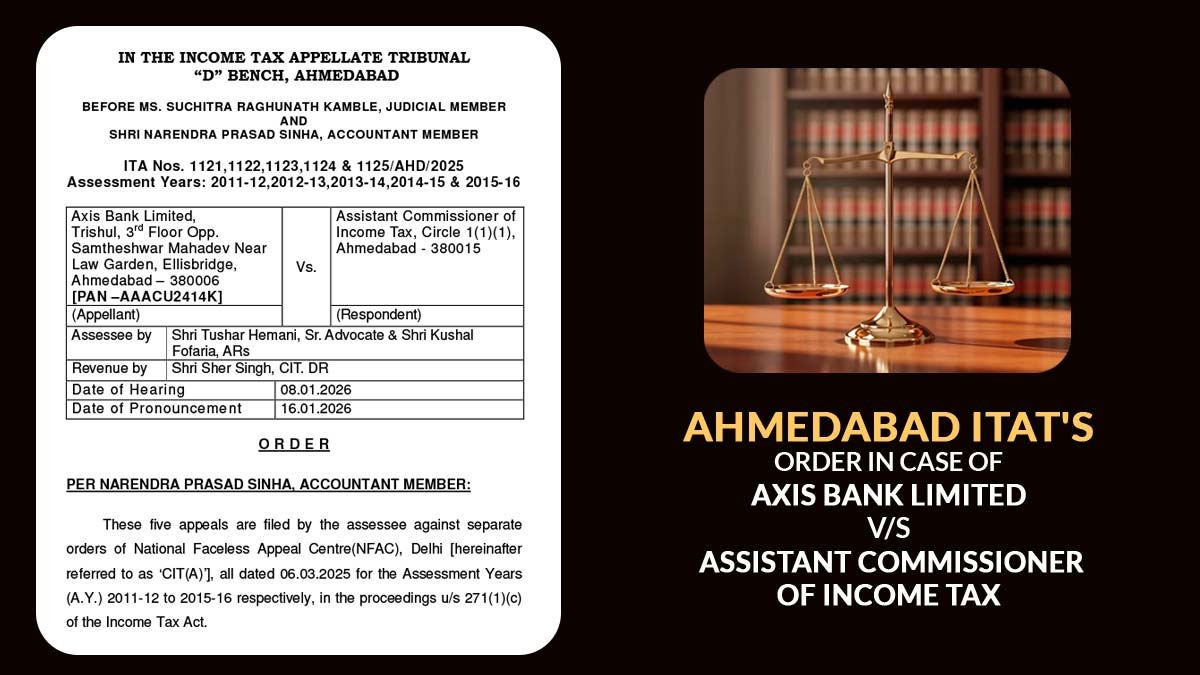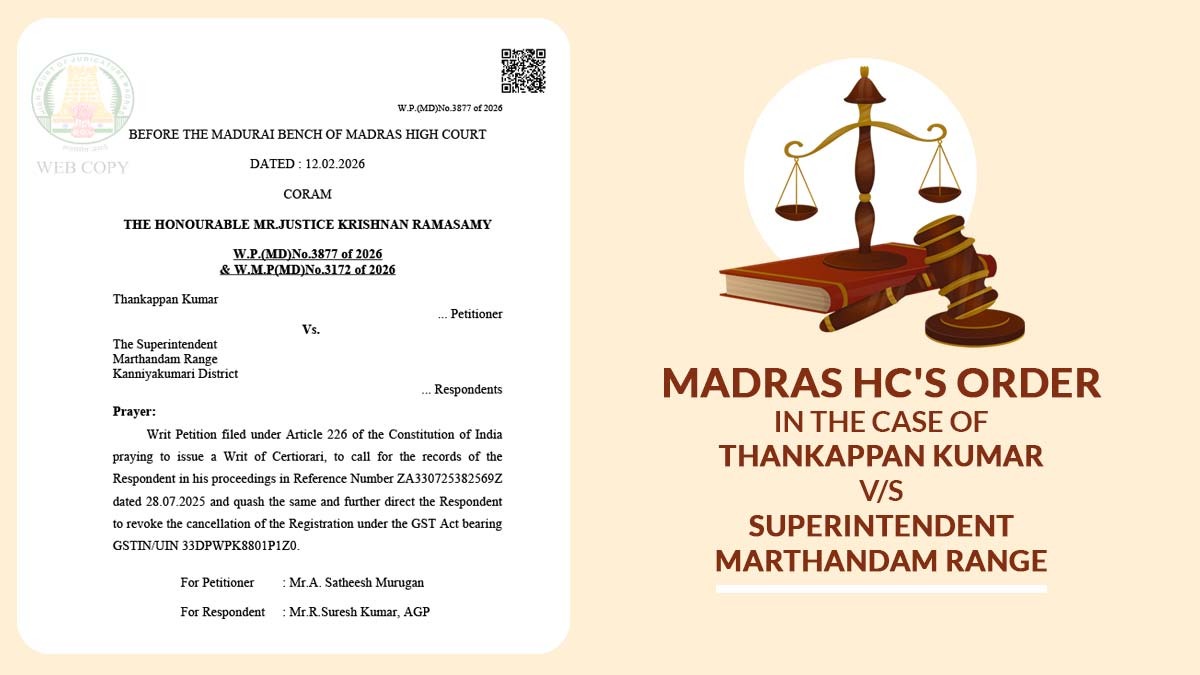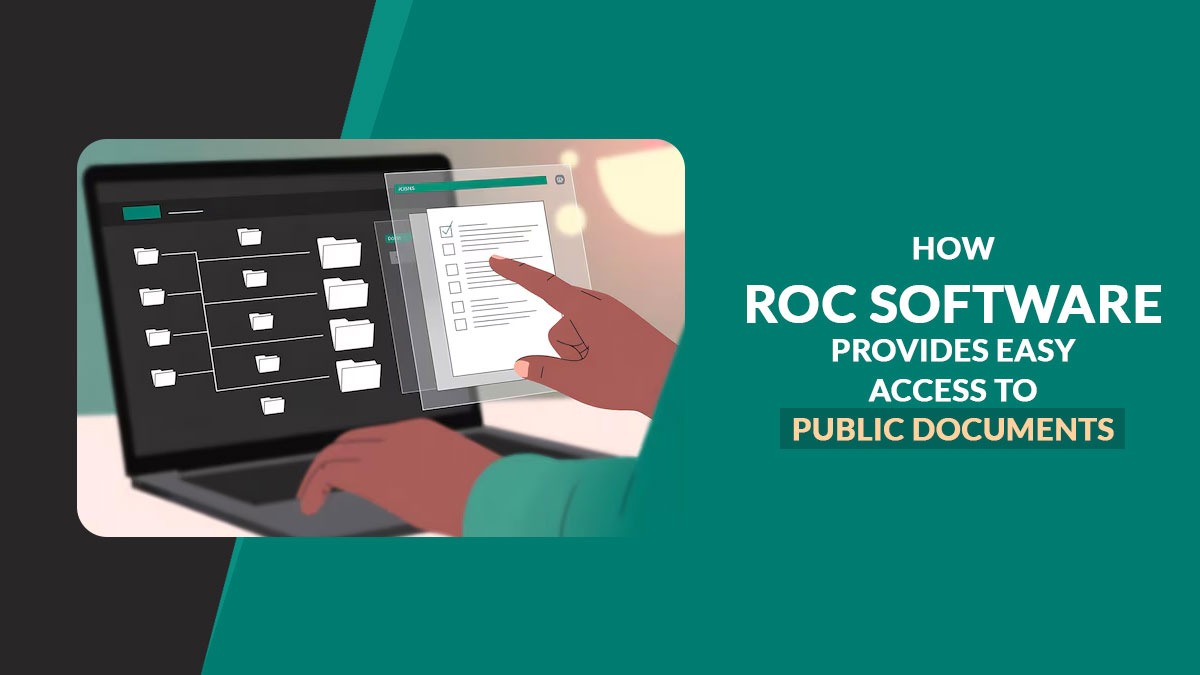
In the scrutiny of a loan transaction between two entities, where the borrower’s liability decreased in the accounts by the amount paid to settle the assessee’s obligation, the Madras High Court determined that this transaction seems to comply with the law. The court explicitly stated that the penalty under Section 271E of the Income Tax Act, 1961 cannot be imposed for loan repayment when there is no involvement of a cash transaction.
The High Court clarified that the consideration of a cash transaction does not arise, consequently rendering the imposition of a penalty under Section 271E unfeasible.
Justice Krishnan Ramasamy, sitting as a Single Judge, observed that concerning the loan granted by the petitioner to M/s. Shakti Sugar Ltd. and the subsequent repayment made by M/s. Shakti Sugar Ltd. to the three entities as per the petitioner’s instructions, along with the discharge of liabilities, appropriate entries were recorded in both the petitioner’s and M/s. Shakti Sugar Ltd.’s books of accounts.
Read Also: Tax Penalty U/S of 271(1)(c) is Not Possible When the Information Was Inaccurate
The same transactions were also accurately reflected in the audited books of account. In light of these facts, the initiation of proceedings against the petitioner appears to have been based on an erroneous assumption of a cash transaction.
According to the case’s summary, the assessee company extended a loan to M/s Shakti Sugar Ltd. during the Assessment Year 2018-19. Following the assessee’s instructions, the borrower repaid the loan to three distinct entities: M/s Hapline Commodities, M/s Padam Sugar Company, and M/s Medicare Clinic P. Ltd.
The assessee then appropriately recorded entries reflecting the reduction of liabilities in the audited books of accounts for the lending company. However, during the finalization of the assessment, the Assessing Officer (AO) issued an assessment order, levying a penalty under Section 271E based on the assumption that the entire repayment of the loan by the borrower was a cash transaction.
The Appellant argued that there was no cash transaction involved in repaying the loan, as evidenced by the audited books of accounts reflecting the settlement of the borrower’s liability. Consequently, the Department wrongly imposed a penalty under Section 271E.
Upon reviewing the records, the Bench determined that the transaction between the two entities, where the borrower’s liability was reduced by the payment made to settle the assessee’s obligations, seemed to comply with the law.
The Bench also discovered that the loan extended by the assessee to the borrower and the subsequent repayment to the three entities, as directed by the assessee, was duly documented in the audited books of accounts.
However, these entries were overlooked in the assessment, leading to the initiation of penalty proceedings based on the incorrect assumption of a cash transaction, as stated by the Bench.
The appeal of the taxpayers is been permitted by the bench and set aside the whole penalty proceedings under section 271E.
Nevertheless, owing to the appeal and stay application being under consideration, the Bench instructed the CIT(A) to review the assessee’s appeal without requiring any pre-deposit and to adjudicate on the appeal following the law within an eight-week timeframe.
| Case Title | Anamallais Bus Transports P Ltd Vs ITO |
| Order No. | W. P.No.31682 of 2023 |
| Date | 07.12.2023 |
| Counsel For Appellant | Mr A.S.Sriraman |
| Counsel For Respondent | Mr R.S.Balaji, Mrs S.Premalatha |
| Madras HC | Read Order |









